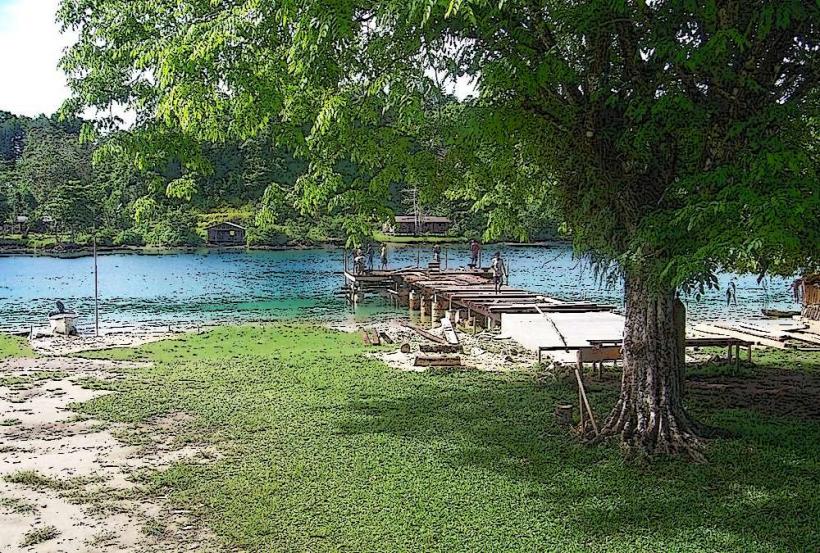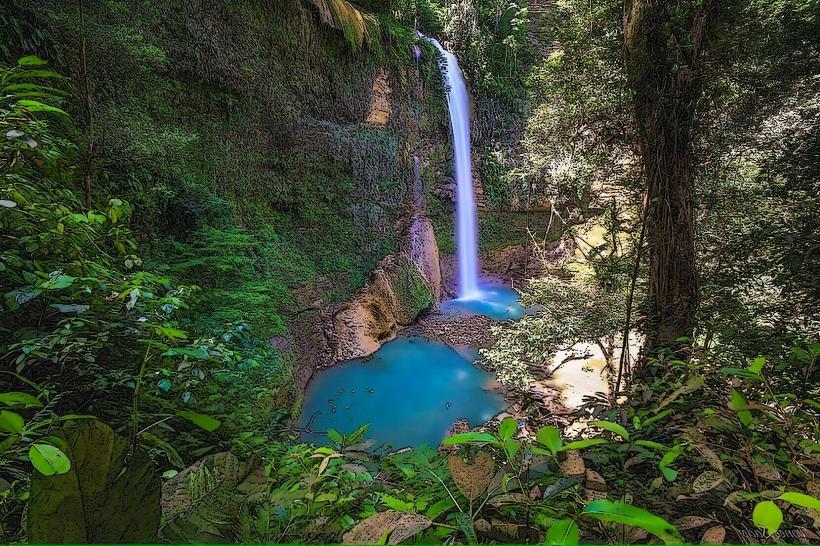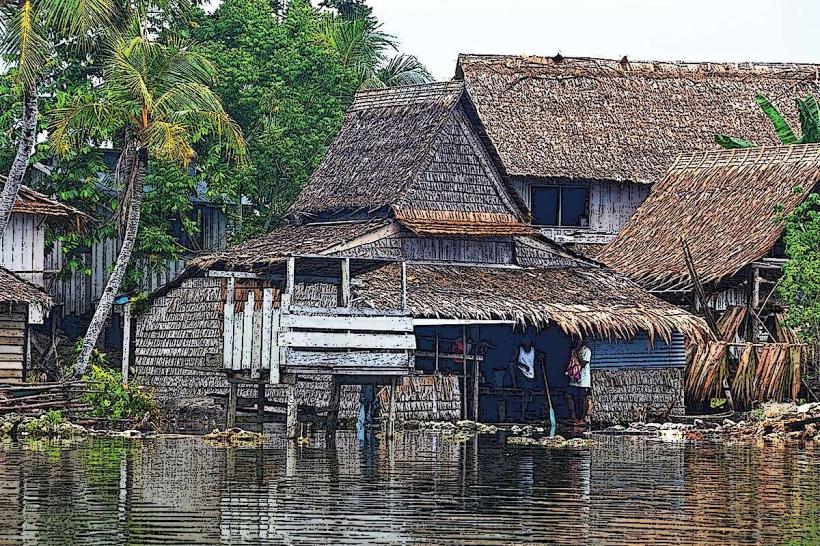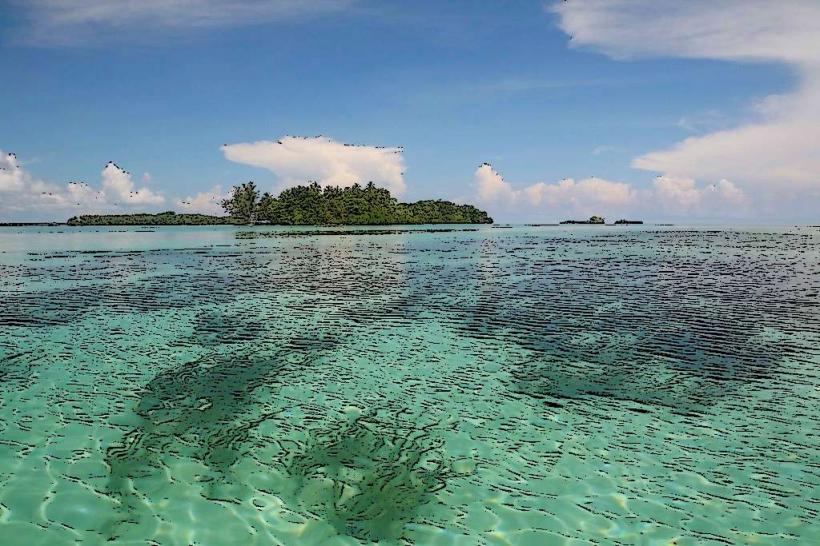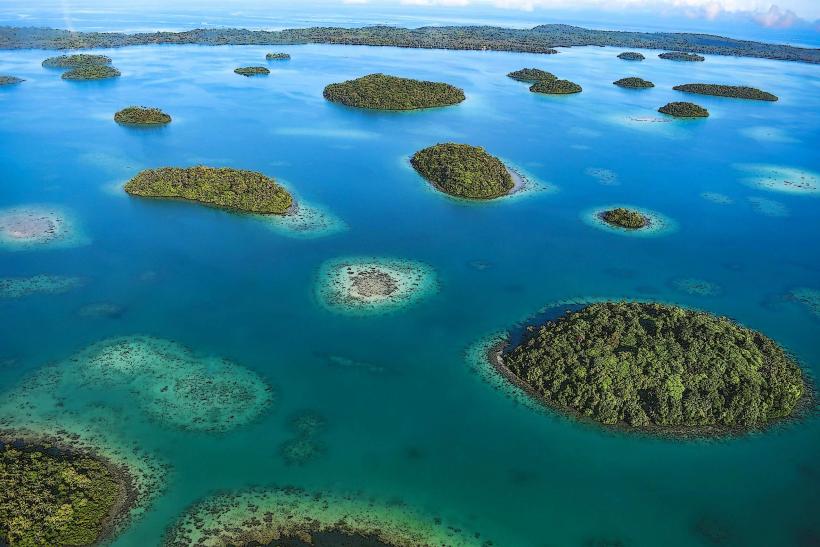Information
Landmark: Arosi BayCity: Makira
Country: Solomon Islands
Continent: Australia
Arosi Bay, Makira, Solomon Islands, Australia
Arosi Bay is a coastal inlet located on the island of Makira in the Solomon Islands.
This bay is characterized by its shallow, clear waters and a shoreline composed of fine, light-colored sand.
Visual Characteristics
The bay's waters exhibit a gradient of blues, from pale turquoise near the shore to deeper sapphire further out. The seabed is visible in many areas, revealing patches of coral and sandy substrate. The coastline is fringed with dense tropical vegetation, primarily palm trees and various broadleaf species, extending inland.
Location & Access Logistics
Arosi Bay is situated on the eastern coast of Makira Island. Access is primarily via a dirt track originating from the main settlement of Kirakira, approximately 15 kilometers to the west. This track is generally navigable by 4x4 vehicles, especially during the dry season (May to October). Public transport options are limited; local boat hire from Kirakira is an alternative, requiring approximately 45 minutes of travel time. There is no designated parking area; vehicles are typically parked on the sandy verge near the beach.
Historical & Ecological Origin
Arosi Bay is a natural geological formation, a coastal embayment formed by the erosion of the island's volcanic rock over millennia. Ecologically, it functions as a shallow marine habitat supporting a variety of reef fish and invertebrates. The surrounding vegetation is characteristic of lowland tropical rainforest.
Key Highlights & Activities
Snorkeling is possible in the clear, shallow waters, particularly over the exposed coral formations. Kayaking along the coastline offers views of the dense vegetation. Beachcombing along the sandy shore is also an available activity.
Infrastructure & Amenities
There are no formal restroom facilities or designated shade structures within Arosi Bay. Cell phone signal is intermittent and generally unreliable. Food vendors are not present at the bay; visitors should bring their own provisions. Basic accommodation options are available in Kirakira.
Best Time to Visit
The best time for clear water visibility for snorkeling is during the dry season, from May to October. Mid-morning offers good natural light for photography. High tide is generally preferable for accessing the reef areas.
Facts & Legends
Local folklore suggests that Arosi Bay was once a favored resting place for ancient seafaring canoes during long voyages. A specific navigational marker, a distinctively shaped rock formation visible at low tide on the western edge of the bay, is said to have guided these early travelers.
Nearby Landmarks
- Kirakira Town (15km West)
- Wainikolo Waterfall (8km Southwest)
- Mount Kerepanga (12km South)
- Marou Bay (4km East)

